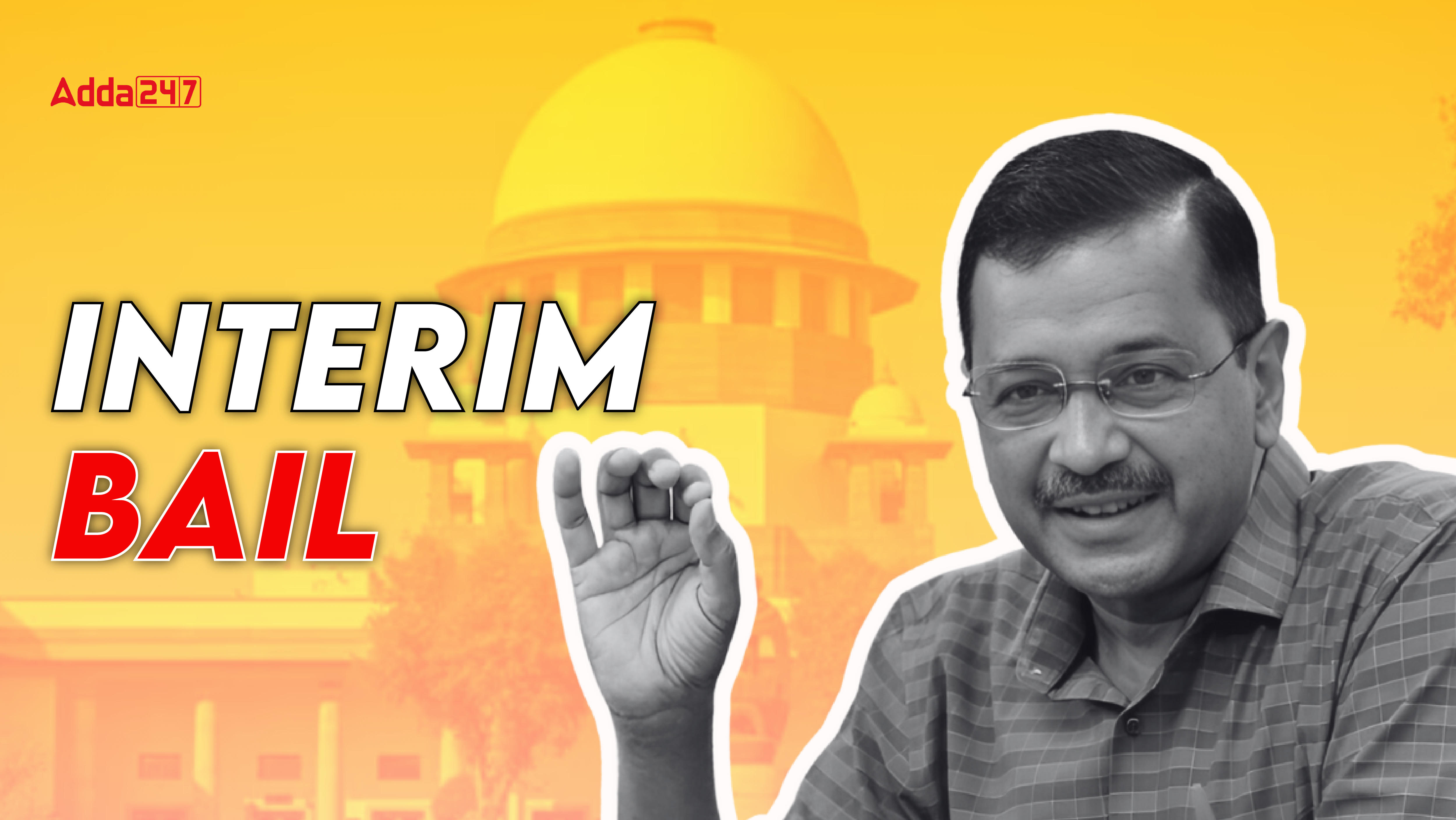Table of Contents
The Hon’ble Supreme Court on May 10 (Friday) granted interim bail to Delhi Chief Minister Arvind Kejriwal, who is in judicial custody in the Delhi liquor policy case, till June 1. He surrendered a day thereafter. In the realm of justice, the concept of bail stands as a cornerstone of the legal system, ensuring the balance between the presumption of innocence and the need for societal safety.
What is Interim Bail?
- Interim bail, as the term suggests, is a provisional or temporary release granted to an accused by a court during the pendency of a bail application or hearing.
- This measure is typically granted to address pressing concerns such as medical emergencies, family crises, or other substantial personal matters.
- Granting of interim bail is the discretion of the Court but decisions should be sound and guided by law.
Types of Bail in India
In India, there are primarily three types of bail:
- Regular Bail: This type of bail is granted after the arrest of an accused person. It allows the accused to be released from custody while the trial is ongoing. Regular bail can be sought for both bailable and non-bailable offenses.
- Anticipatory Bail: Anticipatory bail is sought in anticipation of arrest. It is a pre-arrest bail that is granted by a court to prevent the arrest of the accused based on an apprehension of being falsely implicated in a criminal case.
- Interim Bail: Interim bail is a temporary release granted to an accused person during the pendency of a bail application or hearing. It provides immediate relief to the accused until a final decision is reached on their bail application.
Legal Provisions for Interim Bail
In India, interim bail isn’t specifically mentioned in any law. Instead, it’s based on the power Judges have to make decisions using different legal rules.
The most pertinent laws and principles guiding interim bail include:
- Code of Criminal Procedure, 1973 (CrPC): While the CrPC does not expressly define “interim bail,” it lays down the framework for bail in general.
- Section 437 (pertaining to bail in non-bailable cases by Magistrate),
- Section 438 (dealing with anticipatory bail), and
- Section 439 (granting special powers to the High Court or Court of Session regarding bail) are invoked by courts to provide bail, including interim relief, guided by judicial discretion.
- Constitutional Provisions: The Constitution of India, particularly under Article 21 guaranteeing the right to life and personal liberty, is often construed to encompass the right to bail as an integral component of a fair and equitable legal process.
Grounds for Granting Interim Bail
Courts may grant interim bail under various circumstances, typically guided by principles of justice, equity, and humanitarian grounds. Some common grounds for the grant of interim bail include:
- Emergencies and Urgent Medical Needs: Interim bail may be granted if the accused requires urgent medical attention or treatment that cannot be adequately provided within the confines of the prison. Courts may consider the health condition of the accused and the availability of medical facilities as determining factors.
- Delay in Adjudication of Bail Application: If there is a considerable delay in the adjudication of the regular bail application due to procedural or administrative reasons, the court may grant interim bail to prevent the accused from suffering prolonged incarceration without a fair hearing.
- Humanitarian Considerations: In cases involving vulnerable individuals such as women, children, or the elderly, courts may grant interim bail to safeguard their rights and ensure their well-being. This may include situations where the accused is a sole caregiver or is facing exceptional hardships in custody.
- Substantial Doubt in the Prosecution’s Case: If there are significant doubts regarding the strength of the prosecution’s case or the likelihood of conviction, courts may grant interim bail to prevent the accused from suffering unjust incarceration pending trial.
In the case of Sukhwant Singh & Ors v. State of Punjab (2009) 7 SCC 559, Hon’ble Supreme Court held that the interim bail is a measure especially to safeguard the reputation of an accused. Also, the Court has the inherent power to grant bail to a person whose bail application is still pending for disposal.
Conclusion
Interim bail serves as a crucial mechanism for safeguarding the rights and liberties of individuals embroiled in legal proceedings, ensuring that justice is not delayed or denied due to procedural constraints or emergencies. By providing temporary relief to the accused, interim bail upholds the principles of fairness, compassion, and due process, thereby reinforcing the foundations of a just and equitable legal system.



 TSPSC Group 1 Question Paper 2024, Downl...
TSPSC Group 1 Question Paper 2024, Downl...
 TSPSC Group 1 Answer key 2024 Out, Downl...
TSPSC Group 1 Answer key 2024 Out, Downl...
 UPSC Prelims 2024 Question Paper, Downlo...
UPSC Prelims 2024 Question Paper, Downlo...




